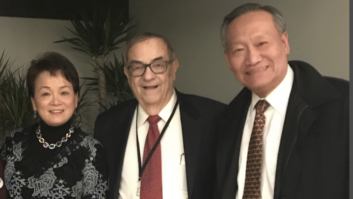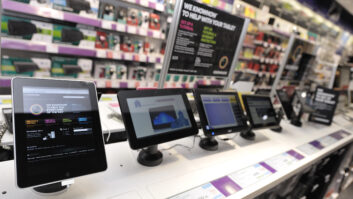Wireless carriers, handset vendors and consumers are the winners when carriers strike deals to offer select handsets on an exclusive basis for a period of time, vendors and carriers claim.
In comments filed with the Federal Communications Commission (FCC), carriers and vendors contend the long-standing practice of offering exclusive products is a best-marketing practice commonly used by many industries. In the case of the wireless industry, it spurs handset innovation, promotes handset competition, and incentivizes carriers, vendors, and participating retailers to launch aggressive marketing campaigns to boost awareness of new products, they said.
Exclusive deals also help drive down the consumer’s price of an exclusive handset, they contend. Exclusivity arrangements usually include volume commitments and guaranteed promotion levels by carriers, helping vendors reduce their risk, defray R&D costs and deliver economies of scale, marketers told TWICE.
As one major master agent told TWICE, “The old way was that manufacturers didn’t know which phones would sell well, so their prices were initially high to defray R&D costs.” Retailers would also limit their initial inventory of a new phone to wait until the price dropped. The new way, he said, “not only drives costs down but also increases choices.”
“Manufacturers do the calculus” to determine the benefit to them of selling a phone exclusively to one carrier or to multiple carriers, the agent continued. Although all of the savings could pass to the carrier’s and vendor’s bottom lines, he suspects market share competition forces carriers to pass on some of the saving to consumers.
Key analysts, including TBR analyst Ken Hyers, concur in many of these views. “It’s a practice that has befitted operators, and manufacturers and arguably befitted consumers,” he said.
Some wireless-industry veterans, however, aren’t convinced of the consumer benefit. As an executive for one distributor pointed out, “If availability is more open, it’s better for the consumer because they don’t have to change networks to get a desirable phone.”
The master agent, however, did not view churning to a new network a major disadvantage for consumers, given the potentially lower cost of exclusive models that offer something distinctive. He also pointed to the diversity of handsets, including exclusive handsets, available from each carrier.
David Sprosty, a wireless executive formerly with Best Buy and the MobilWorks mobile-electronics chains, agreed that “exclusive products are not necessarily the best for consumers,” but “creating awareness sometimes requires an exponential effort,” he said. Pointing to AT&T’s iPhone and Verizon’s BlackBerry Storm, Sprosty questioned whether the carriers would have invested as much in creating awareness if other carriers offered the same models.
Whatever their merits for consumers, exclusive handset deals are under scrutiny by the FCC and, reportedly, by the Department of Justice, which is also said to be taking an initial look at a wide variety of allegedly anticompetitive telecommunications industry practices, including practices by landline and wireless carriers. The FCC solicited comments on the practice but has no timetable for deciding whether to launch hearings to decide whether to ban the practice, a spokesperson said.
The debate arose when rural carriers, through the Rural Cellular Association (RCA), complained to the FCC that exclusive contracts prevent them from offering the latest, cutting-edge handsets to consumers. Should the FCC decide to act, however, the impact will extend beyond rural carriers. Regional carriers such as MetroPCS and Cricket and nationwide MVNOs could get quicker access to key handsets. A ruling could also force Apple to offer its iPhone to other U.S. GSM carriers and prevent vendors such as Palm from launching its planned Pre only through a single carrier before offering it to others.
Since the rural and regional carriers complained, consumer groups have piled on to call for the end of exclusive handset deals. The carriers contend that exclusivity periods typically end long after a handset is obsolete. With equal access to handsets, they would be able to compete better with bigger carriers, generate higher revenues, and pour the additional profits into network expansion and improvements. Only one out of the top 10 selling phones is not part of an exclusive carrier-vendor deal, the RCA said in its comments to the FCC.













